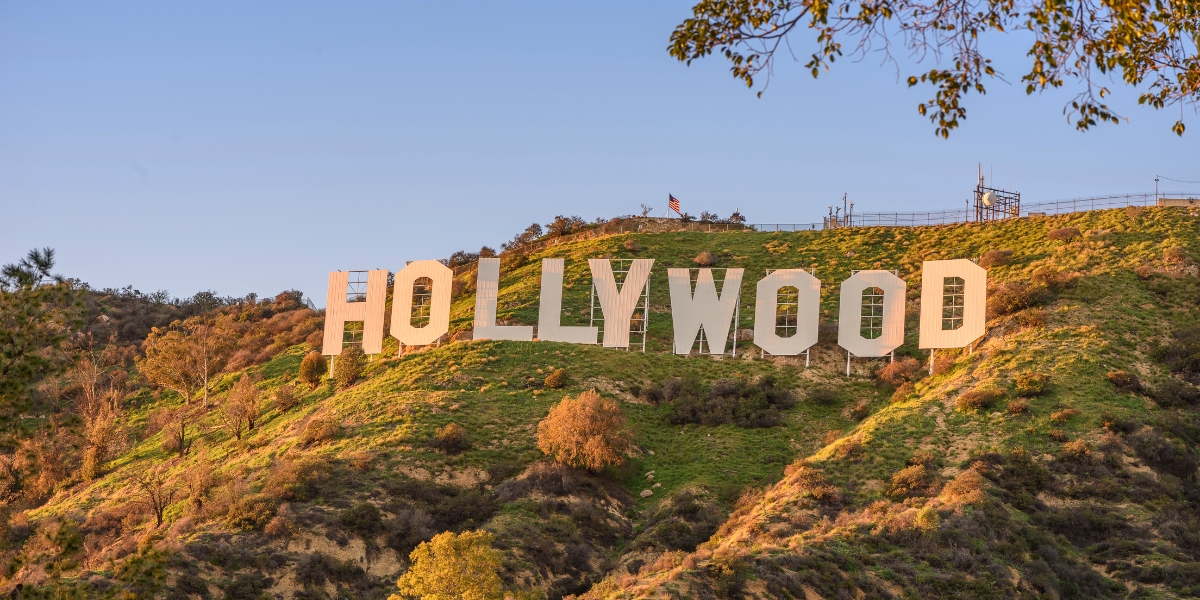It seems like 2023 is going to be full of disruptions. Fire, floods, pests – yes, it sounds almost biblical. And now Hollywood has gone on strike.
It’s not just that many of the comforts we have used to distract us from the chaos surrounding us may become less available; this strike may hit many of our friends and neighbours.
In case you haven’t heard, the US actors’ union (SAG-AFTRA ) went on strike on Thursday after negotiations with the Alliance of Motion Picture and Television Producers (AMPTP) fell through. The actors join the film and television writers who have been on picket lines since May.
The AMPTP comprises more than 350 American television and film production companies. This includes hotshot studios like Walt Disney Studios, Warner Bros., and Universal Pictures. And Popular streaming services like Netflix, Amazon, and Apple TV+.
Studios now face their first dual strike from actors and writers in 63 years, forcing them to halt many US, Canada and overseas productions.


The US actors union and the AMPTP signed a major agreement in July 2020, but that agreement expired in June. Before the agreement expired, SAG-AFTRA and the AMPTP entered negotiations for a new contract.
What Does This Mean For Alberta?
Technically the Hollywood strike. the actors SAG-AFTA only represents actors in the US, but the strike demands that members pull out of production anywhere in the world.
As a result, Season 2 of Billy The Kid in southern Alberta has stopped. The upcoming shooting schedule for television shows in Calgary is also murky, including Netflix’s The Abandons.
But according to Luke Azevedo, the vice-president of creative industries, operations, and film commissioner with Calgary Economic Development, purely Canadian shows like Heartland will continue production. Phew.
Still, Azevedo believes the loss of major projects in Alberta will have a ripple effect across the film industry and industries that rely on film productions.
“Hotels, rental cars, restaurants, all of the things that count in many jurisdictions throughout the world on film and TV to be part of that revenue generation,” Azevedo told CTV News.
The actors union in Canada, the Alliance of Canadian Cinema, Television, and Radio Artists (ACTRA), has voiced support for the strike, including ACTRA Alberta, representing almost 1,100 members.
In addition to pulling out of production, actors will not be permitted to promote past projects through conventions, interviews, or panels during the strike.
What’s the Dispute About?
One of the major issues in the negotiations is over how to handle residuals or the payments actors receive for repeat showings of films or TV shows.
Back in the day, when cable TV reruns were all the rage, actors received residual payouts for every time their show was rerun. Residuals amounted to a big part of actors’ income. You could count on getting big residual checks for years if you were lucky enough to get cast on a hit show like Cheers, Due South, Corner Gas, Friends, or Degrassi.
Not anymore because residual payments for streaming services work differently.
Unlike cable TV reruns, residuals for streaming services are based on the platform’s number of subscribers, not the number of views a series or film gets.
Long story short, the increasing popularity of streaming has led to steep cuts in residuals for actors.
For example, Cody Ziglar, the primary writer for the Disney+ show She-Hulk: Attorney at Law received a measly $396.00 residual check for one of the series’ most popular episodes that they wrote.
She-Hulk is a Marvel-produced TV series. The budget for each episode sits at a comfortable $25 million. Shouldn’t Ziglar’s residual pay be much higher?
ACTRA Alberta president Blair Young points out that only a small percentage of actors make six-figure salaries. He believes reduced residual pay will hurt the industry in the long run.
Unfortunately, like the biblical scourges this year has brought, there is little locals relying on US productions can do to protect themselves. This is just another reason to prioritize diversifying our economy to support locals over foreign interests.






